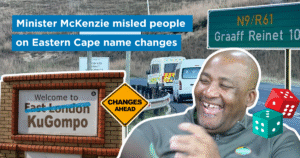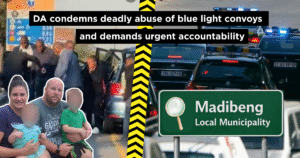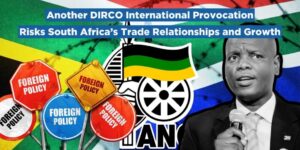The right to access to food is a constitutional right entrenched in the Bill of Rights of the Constitution of the Republic of South Africa, 1996. Food security as well as food safety must be the focus of the Department of Agriculture, Forestry and Fisheries (DAFF).
The White Paper on Agriculture, published in 1995, recognises the contribution of agriculture in the improvement of income, food security, employment and the quality of life and emphasises the requirement that the State must take reasonable and other measures within its available resources to achieve the realisation of these rights. We cannot discuss
agriculture without placing it in the context of land reform in South Africa. The same whitepaper also states the need for a multidimensional view to enhance household and national food security. It identifies land reform as a way to ensure that more households will be able to continually access enough food.
The Democratic Alliance fully supports and agrees with this sentiment and used it as a basis to measure whether we have made progress with regards to agriculture’s role in achieving food security.
Earlier this year, the portfolio committee met with Stats SA to get a better understanding of the current state of agriculture and food insecurity. It must be acknowledged that access to food has been improving, and the incidence of hunger has been declining and this is mainly because of the school nutritional scheme and a massive increase in grant beneficiaries.
According to Stats SA’s latestGeneral Household Survey report;
- 26.4 % of persons have inadequate or severely inadequate access to food;
- The number of agricultural households decreased by 19.1% (600 000) from 2.9 million in Census 2011 to 2.3 million during the community survey of 2016; and
- 43.7 % of households use agriculture as a main source of food.
What makes it difficult to measure progress is that there is no comprehensive farmer register which could be used to support farmers and act as a sampling frame to conduct agricultural surveys and censuses. The lack of a database is one of the main reasons why the North West province could buy cattle to deliver to Nkandla and 6 Range Rovers could be bought as agricultural implements in the Free State. The Vrede dairy farm is a well-documented example of how the system gets manipulated. A list of beneficiary names was
only added AFTER questions around Vrede farming operations had been asked. It is widely known that agricultural support is mainly targeted at helping those connected cadres, the 43% of farmers that use agriculture as a main source of income is mainly left to fend for themselves.
Although the National Development Plan (NDP) makes reference to a number of steps that will improve food security, including the expanded use of irrigation, security of land tenure, especially for women, and the promotion of nutrition education, it is unbelievable that government is still without a Food and Nutrition Security Policy even after Cabinet approved the national Integrated Food Security Strategy (IFSS) in 2002. I do not believe that that
policy will ever see the light of day, the current version even says SECRET on its cover.
Not only do food producers have to deal with safety and security on farms but issues of climate change and pest and diseases need constant innovation and adjustment. Pests like, the Fall Armyworm, Tomato Leaf Miner, oriental fruit fly and Banana bunchy top disease is very destructive pests in areas where it occurs and can put food security at risk. It is a great concern that DAFF is still not budgeting for disasters and must take from other food production budgets when these disasters strike. Again, farmers are mostly left to fend for
themselves in these difficult times, the department also still doesn’t have a budget for drought relief or even a drought management plan in place. The impact of Avian Influenza can still be felt by consumers, especially the price of eggs that has increased by 20%.
The recent Listeriosis outbreak has had a crippling effect on many industries but none so dramatic such as the pork industry where losses are estimated at over R1 billion. While large scale farmers and manufactures might survive disasters such as this, there is little protection for smaller producers. The government has failed both in the protection of consumers and
protecting the jobs in the Agricultural Sector. According to media reports, South African fresh produce is still banned in Rwanda after the Listeriosis outbreak because DAFF is dragging its feet on paperwork.
For agriculture to take its rightful place in the economy, we must introduce a single funding model for producers. We can look at the Western Cape government, it has embraced a land reform model that works. With the rest of the country on a 90% failure rate for land reform, the Western Cape is on a 62% success rate according to an independent study. The current
commodity approach where farmers form part of a training, mentorship and marketing program is bearing fruits.
The Democratic Alliance applauds the work that the commodity organisations is doing in order to transform the agricultural sector. It has been reported that 108 307 farmers were already assisted with a budget of only R331 million. The Western Cape government has also leveraged over R80 million per year from the private sector to support emerging farmers. The main focus of the support is in ensuring that farmers became viable and profitable in their businesses. I have seen great results under some of these programs wherein grain
farmers’ yield improves from 3 tons a hectare to 9 tons a hectare.
This makes a massive difference if a farmer can feed his family but have some extra money left over for improving their conditions.
The Democratic Alliance believes in freedom, fairness, opportunity and diversity, just imagine what could happen if total change could deliver one South Africa for all




